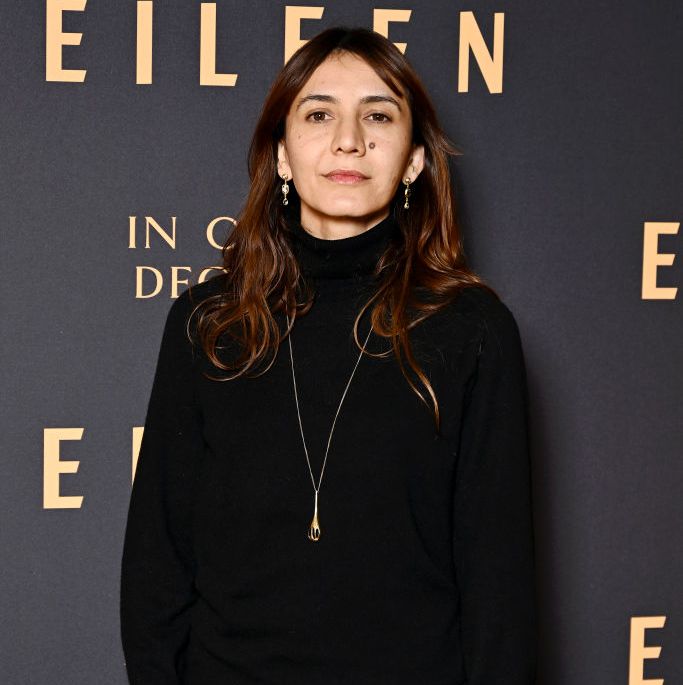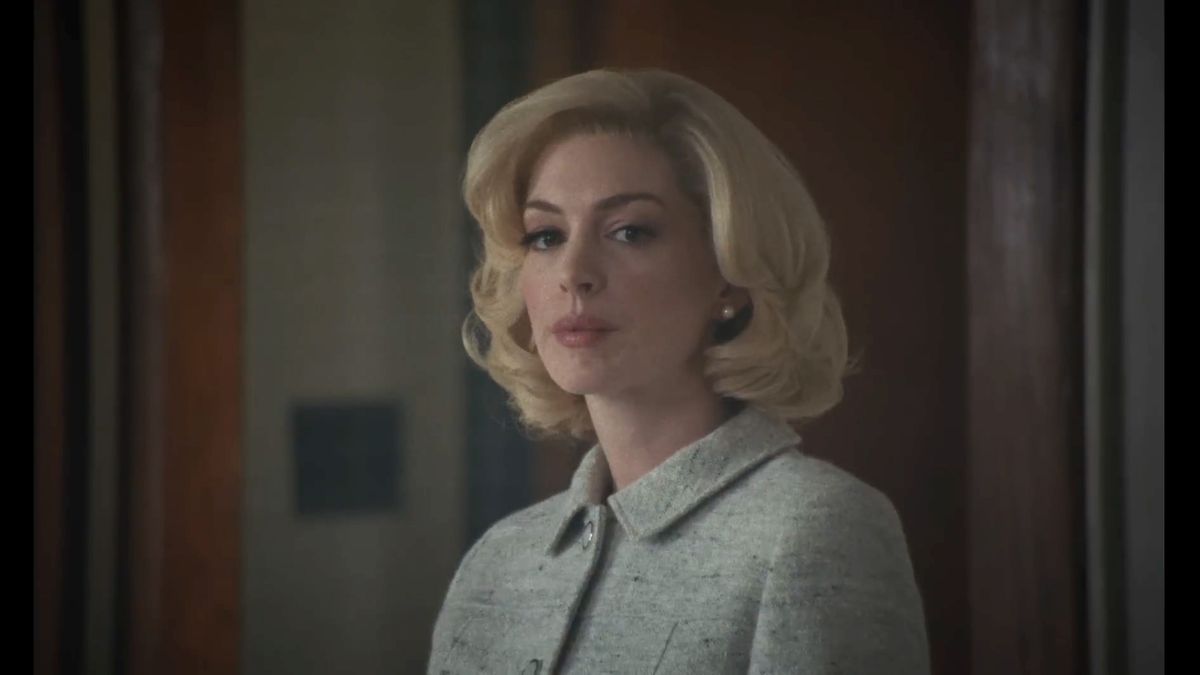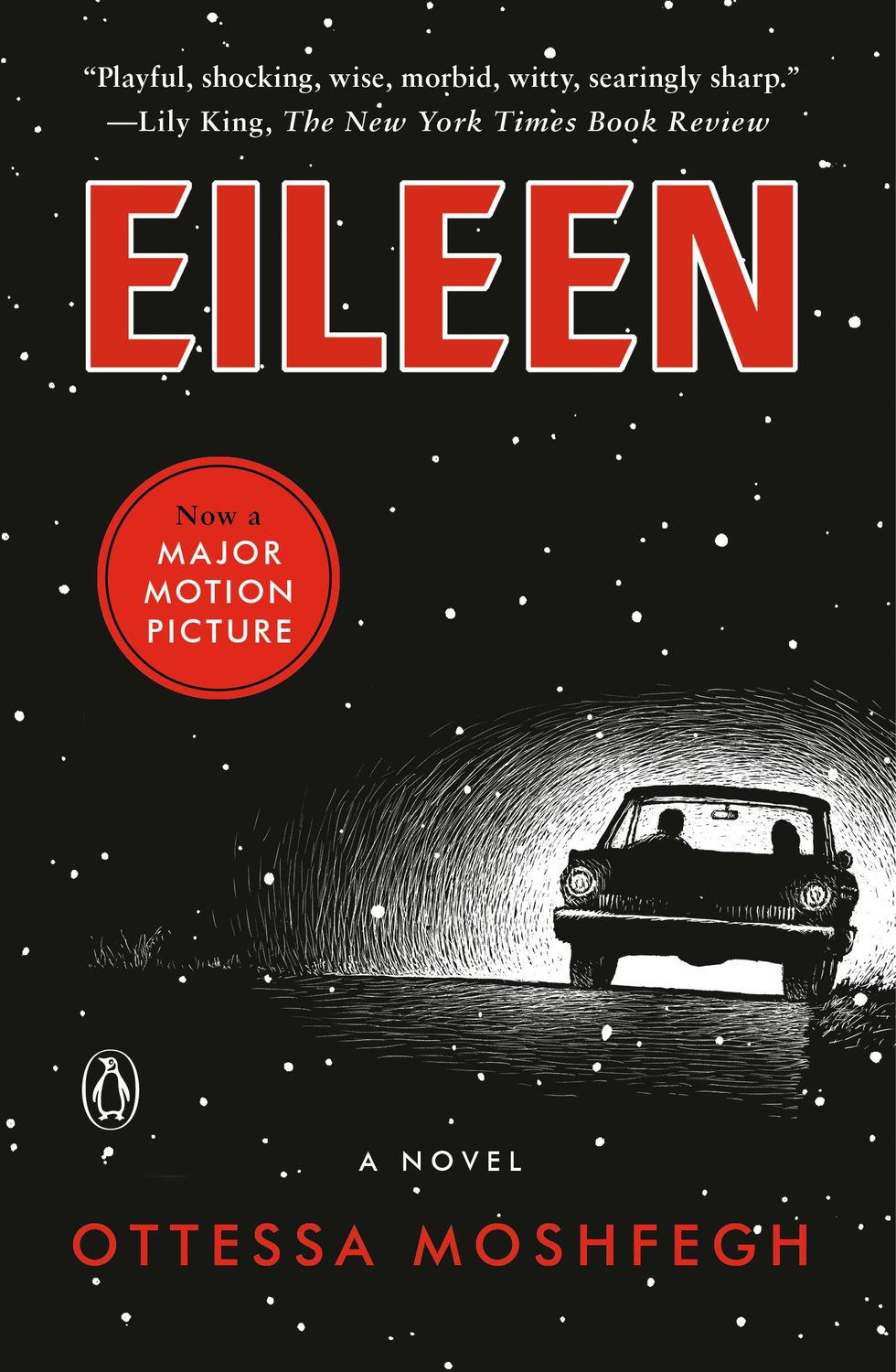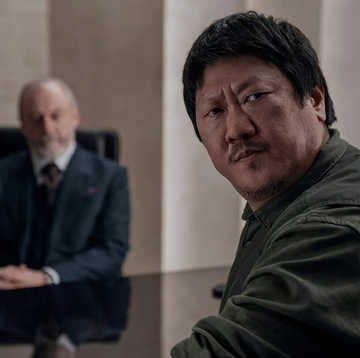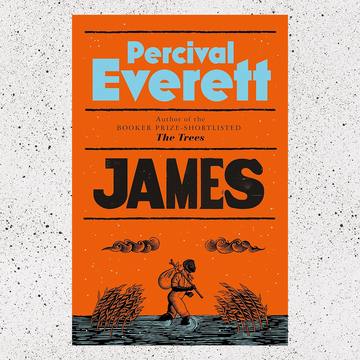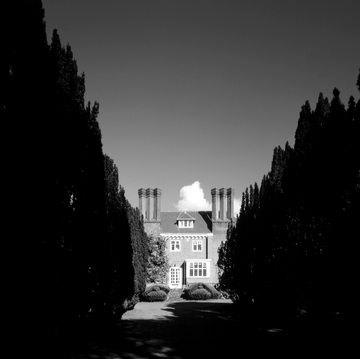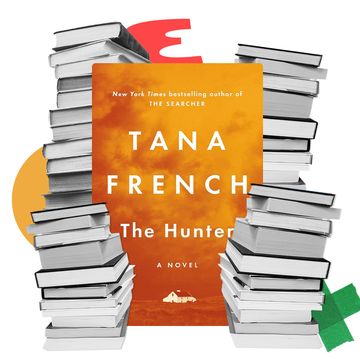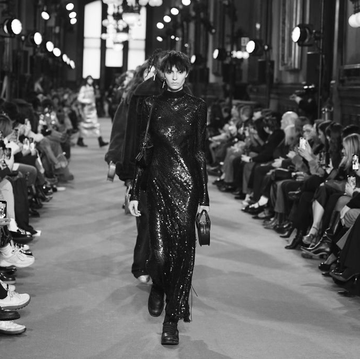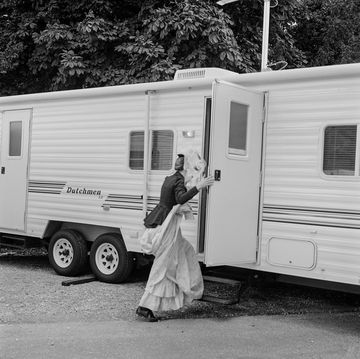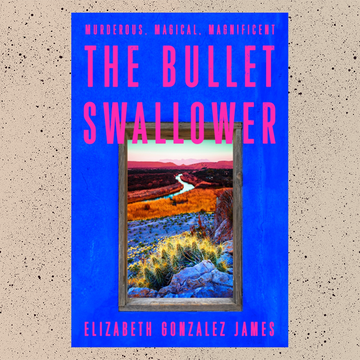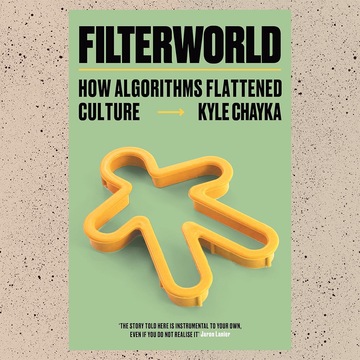"It was like Eileen herself had come to me," says Ottessa Moshfegh, describing the moment she first saw Thomasin McKenzie's audition as the protagonist of her new film, Eileen. That was just the beginning of the many serendipitous moments that arose for Moshfegh during the process of adapting her debut novel for the big screen. While translating Eileen to film, Moshfegh saw aspects of herself and Eileen transformed more than she could have imagined.
Eileen, Moshfegh's breakout novel about two young women forging a friendship in an unforgiving Massachusetts town, launched the author to literary stardom; it was shortlisted for the 2016 Man Booker Prize and earned the PEN/Hemingway Award for Debut Fiction. After three more novels, Moshfegh has turned her sharp narrative focus to writing for the silver screen. In 2020, she began the process of turning Eileen into a screenplay, collaborating with her husband and partner, Luke Goebel, as well as director William Oldroyd. The film premiered at Sundance Film Festival to rave reviews, which emphasised the powerful performances and the success of the screenplay.
Eileen is faithful to the delightfully morbid essence of the novel, but elevates the book's tone to something downright Hitchockian. Moshfegh was especially enamored by the performances of her two female leads: Thomasin McKenzie, who played the titular Eileen, and Anne Hathaway, who acted as Eileen's friend Rebecca. "I've seen the movie so many times, and yet every time I see a clip, I'm like, wow, that is so above and beyond what I pictured," Moshfegh tells Esquire. With Eileen hitting cinemas as Moshfegh turns her attention to the upcoming film adaptation of her second novel, My Year of Rest and Relaxation, the author is just beginning to plant her footprints in our cinematic canon.
This interview has been edited for length and clarity.
ESQUIRE: It's going to be really hard for me to disassociate Anne Hathaway and Thomasin McKenzie from the characters of Rebecca and Eileen.
OTTESSA MOSHFEGH: They both seem so iconic. The thing about Anne Hathaway's performance is she really brought the incredible history of her own screen presence to the role. It added so much glamour and very deliberate pretension to a character that was kind of acting like a movie star. So that was one of the miracles of the casting. That's the first thing I always want to say about the movie: the acting was spectacular.
How did you centre yourself in 1960s New England when you were writing the book and also while working on the screenplay?
I grew up outside of Boston and I was born in 1981. The world of New England in the '80s really hadn't shifted all that much, especially in small towns. The town that I imagined Eileen living in in 1964 was probably pretty outdated already, which is why the culture is so conservative and people hadn't really been awakened. Awakened in the sense of how we feel and think about the '60s with the civil rights movement and the sexual revolution. Places like X-ville were definitely going to be late to the game. It all felt very primary to my cultural experience growing up.
What was it like for you adapting Eileen into a movie versus writing the novel?
It was different in every way possible. And I was different. I think I wrote the first draft of Eileen in 2012 and we were writing Eileen the screenplay in 2020, so I had that much time away from the first generation of that character. A lot of things had shifted, and I was older, and I had a more distanced perspective from Eileen and Rebecca and Mrs. Polk and Eileen's dad.
Writing the novel was extremely difficult. Every novel for me is extremely difficult because you're pulling everything out of thin air. I really had to dig very deep to find these characters and present them, as well as craft a novel that was doing what I wanted to do as an author. The biggest difference was that I didn't do the screenplay alone. When we started doing this movie, it was really just Luke Goebel, my husband and co-writer; me; and William Oldroyd, our director. We all shared the same vision of the film. We could all talk about the film knowing that we were talking about the same film. It's kind of miraculous to get three people who are all seeing the same hallucination.
Were there any difficulties for you while you were adapting the novel to the screen?
There were often times where, as the author, I had a commitment to seeing the scene play out a certain way, because that's what existed in my imagination. And Luke [Goebel] would offer a different line, a different detail, or a different sense of pacing. Sometimes it upset me emotionally, and sometimes it just boggled my mind. But it was always additive. He added another dimension and layer to a story that was, in its inception, a first-person narrative. To take it into the screenplay, it had to become a third-person point of view. I needed to see Eileen from the outside.
The book is so deep in Eileen's mind and imagination, detailing her sexual fantasies about Randy and violent fantasies about her dad. How did you translate those moments into film?
Very deliberately. So much of the book is what Eileen is imagining, which is really important, because she is an unreliable narrator in the formal sense in that her descriptions and judgments are subjective. So we picked moments from the book that would clue us into her interior—the things that she would not want other people to see. I think the first fantasy scene we see is basically a sex scene with the character of Randy when she's sitting at work. It felt important to establish her as a character who had strong desire. She's not a class clown or a Rebecca. We needed to convey that she might be this soft-spoken person on the outside, but inside, she's passionate.
I think her relationship with her father is really complicated. It's the kind of complication that I felt like I needed a whole book to write about. Being the caretaker for someone who hates you, whom you hate, but you also love and who loves you back is so tough. When I was an adolescent, I probably thought things like, I wish my parents would die. Every child has that momentary fantasy. But then when you really imagine it, it's absolutely heartbreaking and devastating. I felt that it was important to show her rage, especially with a gun, in response to her father's emotional abuse and the trap that he sets for her during every interaction. There's a very important moment later with the gun that wouldn't be as beautiful, I think, if the gun hadn't become a vehicle of self-expression and rage. That was all very carefully designed and something that we worked on a lot throughout the draft.
In the movie, there's a scene after Eileen and Rebecca hang out at the bar where Rebecca kisses Eileen. It's a magical moment, but it wasn't in the novel. How did that come to be?
You know what? It really surprised me, too. Luke [Goebel] and I had talked about it and I had always been like, no, it should never be an obvious thing. I always felt that whatever attraction existed between Eileen and Rebecca wasn't defined explicitly as sexual or romantic. So we went back and forth about it. It could have been a last minute change that we wrote in, but I don't think so. It's kind of an amazing thing that Rebecca does in the moment. It was in the moment for the actors, too.
In the script, it says that she gives Eileen a platonic peck on the lips. To me, that wasn't just a peck on the lips as you say goodbye. It was an expression of something. It was trying to connect in some way and, yeah, it was a magical moment. Desire is desire. It's not necessarily a lesbian love story, but it's certainly a story about seduction and loneliness and desire and deceit, which are hallmarks for any good romance, right?
I also really loved the line when Eileen says, doesn't everybody want to kill their father? That got a big laugh at my screening.
When you have this rapport with someone you know is attached to you, this kind of verbal abuse can become a cat and mouse game. Through writing scenes with Eileen and her father, I started to understand that they were complicit in enabling one another to stay imprisoned and trapped. Eileen does it with alcohol, aiding the denial of the fact that her father is a menace to society. But that's the only reality that she knows. She doesn't have a lot of friends, so she probably thinks this is what it is to have a dad. Everyone must hate their fathers. It just seemed like the kind of philosophy that she might have been miseducated about through her experience.
What was it like watching the movie for the first time?
It's so hard to say, because at this point the film displaced and replaced so much of the imagery in my head. When we first saw Thomasin McKenzie's audition tape as Eileen, I was actually a bit terrified, to be perfectly honest, because it was like Eileen herself had come to me. It was very eerie and very moving. She is Eileen for me now.
You know, there's certain weird psychological phenomena around this, I'm sure, because watching the movie and I know this sounds crazy, but I can see me in Eileen. In the parting of her hair, or something about her three-quarter profile, and that essence got transmitted through my fictional protagonist to a screenplay into an actor. It's this magical thing that makes me believe in the power of art, and how crucial it is for us as people in a time where it's very hard to connect. I think a lot of the film is about how scary and dangerous things can get, if we don't connect and tell the truth to one another.
Sirena He is an editorial assistant and writer who focuses on media and culture. She is a lover of horror films and believes in the healing power of storytelling.
